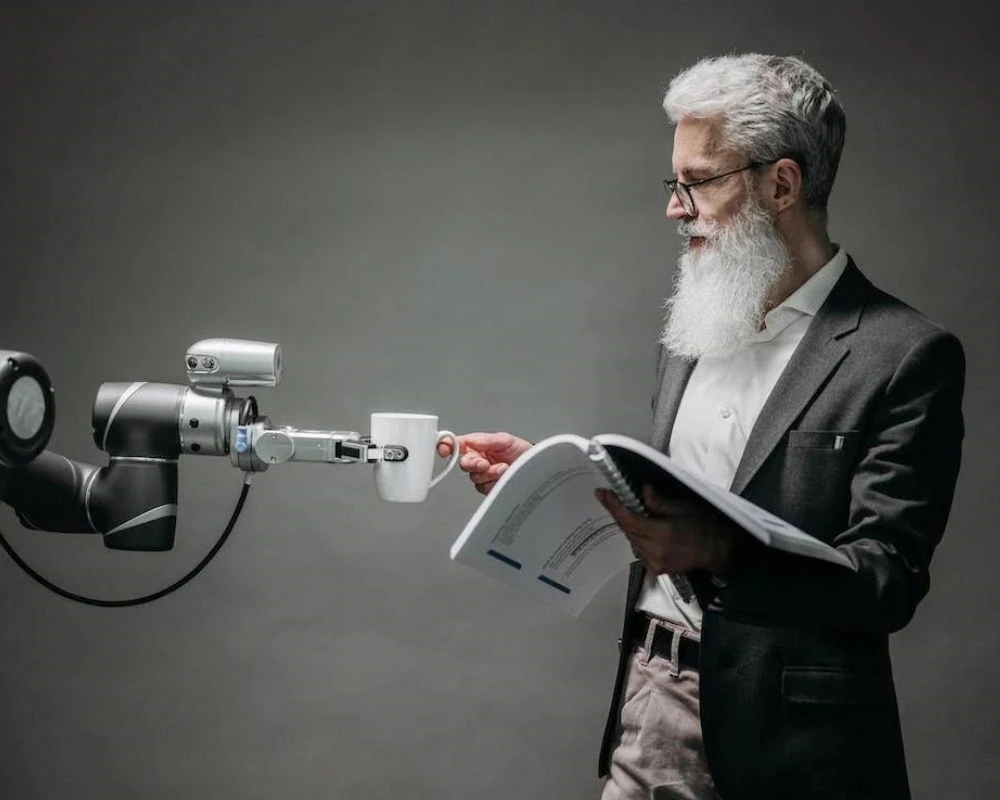Introduction
The digitalization of operational know-how is a cornerstone of competitiveness. Faced with accelerating technological innovation and constantly evolving market requirements, industrial companies are faced with a dual challenge: maintaining a high level of quality while adapting rapidly to change. This context makes it imperative to adopt digital solutions to standardize work instructionsenhance and accelerate the skills enhancementand strengthen strategic talent management.
This article takes you on a journey to the heart of these transformations, highlighting how a platform such as Mercateam can position itself as a vector of success by industrializing operational know-how and making it more accessible, measurable and scalable.
1- Standardize work instructions
Standardizing practices ensures greater consistency and operational efficiency.
Standardizing work methods is essential for optimizing productivity and minimizing operational errors. By establishing standards This means that every employee, whatever his or her experience, can refer to a tried-and-tested procedure model, thus avoiding deviations that could harm the quality of the finished product and increase the risk of incidents.
These standards also play a role in the transfer of knowledge between employees. Thanks to these standardized instructions, it's easy for newcomers or temps to take over tasks without a laborious adaptation period. This contributes to the company's flexibility and responsiveness to unforeseen events and personnel changes.
What's more, the standardization of operations results in superior quality products and, by extension, greater customer satisfaction. By emphasizing rigor and consistency in operations, we pave the way towards industrial excellence and confidently face an increasingly demanding market.
To make this digitalization a reality, a tool like Mercateam could be used for standardize work instructions within a plant. Its platform not only documents procedures, but also ensures that they are disseminated and understood by all employees, reinforcing the quality and consistency of day-to-day production.
| Issues | Action | Profit |
|---|---|---|
| Error reduction | Digitizing procedures | Greater coherence |
| Knowledge transfer | Integrating new employees | Operational flexibility |
| Quality enhancement | Standardizing operations | Customer satisfaction |
2- Enhancing skills
Investing in training means ensuring the sustainability of know-how in the face of changing market needs.
The adaptability of teams is a key factor in competitiveness in a global economy. a changing industrial sector. The ability to rapidly upgrade skills makes workers pillars capable of pivoting according to production needs and technological innovations. This requires ongoing investment in training and professional development of employees, resulting in versatile teams ready to meet tomorrow's challenges.
At the same time, the rapid pace of technological change makes it imperative for companies to adapt their human capital. A workforce trained in the latest innovations is less likely to render the company obsolete. Aligning skills development with the pace of technological progress guarantees a place of choice in a competitive market.
Finally, investment in skills development is a source of sustainable competitive advantage. Employees, empowered and confident in their ability to use the most advanced equipment, are more engaged and productive. In so doing, the company cultivates a reputation for excellence and attracts both customers and talent.
For example, a manufacturing company could use the Mercateam platform to develop and monitor training programs for its operators. With its skills tracking and certification management functionalities, this solution ensures structured skills upgrading in line with the requirements of industry 4.0a real competitive advantage in the marketplace.
| Technology/issues | Action | Advantage |
|---|---|---|
| Technological innovations | Targeted training | Increased competitiveness |
| Skills development | Monitoring and certification | Commitment and productivity |
3- Strengthen skills management
Precise skills management ensures the proper allocation of human resources.
The fine-tuned skills management is a lever for optimizing corporate performance. It begins with the precise identification of gaps in know-how, which is crucial in determining the necessary training actions and development opportunities for each employee. This process, when digitized, allows for greater responsiveness and personalization in career management.
Aligning strategic skills management with the company's vision of the future is essential. By monitoring current and required skills for each position, we can anticipate future needs and make adjustments to recruitment and training in order to remain at the cutting edge of operational efficiency.
Improving individual and collective performance is at the heart of this approach. By ensuring that each team member has the tools and training needed to excel in his or her role, we ensure a general increase in skills, which translates into better quality of work, greater flexibility and a solid contribution to the company's overall objectives.
To put these principles into practice, the integration of a tool like Mercateam enables a company to monitor its employees' skill levels in real time. This makes it easier to identify training and optimal allocation of human resourcesThis is a great way to improve the company's performance, while at the same time providing valuable data for strategic talent management.
| Objective | Strategy | Impact |
|---|---|---|
| Identifying gaps | Digital monitoring | Personalized career management |
| Strategic steering | Anticipating needs | Operational efficiency |
| Performance enhancement | Appropriate tools and training | Enhanced quality and flexibility |
Conclusion: digitizing operational know-how
In conclusion, the digitization of operational know-how is not just an option, but a necessity for industries wishing to maintain and increase their competitiveness in an increasingly demanding environment. Through standardization procedures, investment in continuing education and a precise skills managementIn this way, companies can achieve a profound transformation, leading to unrivalled operational excellence. Mercateam is proving to be a strategic partner in this process, offering a comprehensive solution for successfully navigating the complex landscape of Industry 4.0.
By embarking on this path, industries can not only meet today's challenges, but also anticipate future needs, ensuring their longevity and prosperity. Embark on this industrial revolution with the right tools, and discover how Mercateam can transform your operational management into a lever for sustainable success.
digitalizing know-how operational




